Towards the end of the 26th Dynasty, the Egyptian empire was ruled by Psamtik III, the son of the former Pharaoh Amasis. Although a strong ruler, he lacked the power to counter a battle with Persian forces. Persians exploited this weakness and employed a deception tactic that became one of the earliest examples of psychological warfare in human history, per History Skills. Persians charged a battle against Egyptians which famously came to be known as the "Battle of Pelusium." This battle marked a steep decline and total collapse of the Egyptian empire.
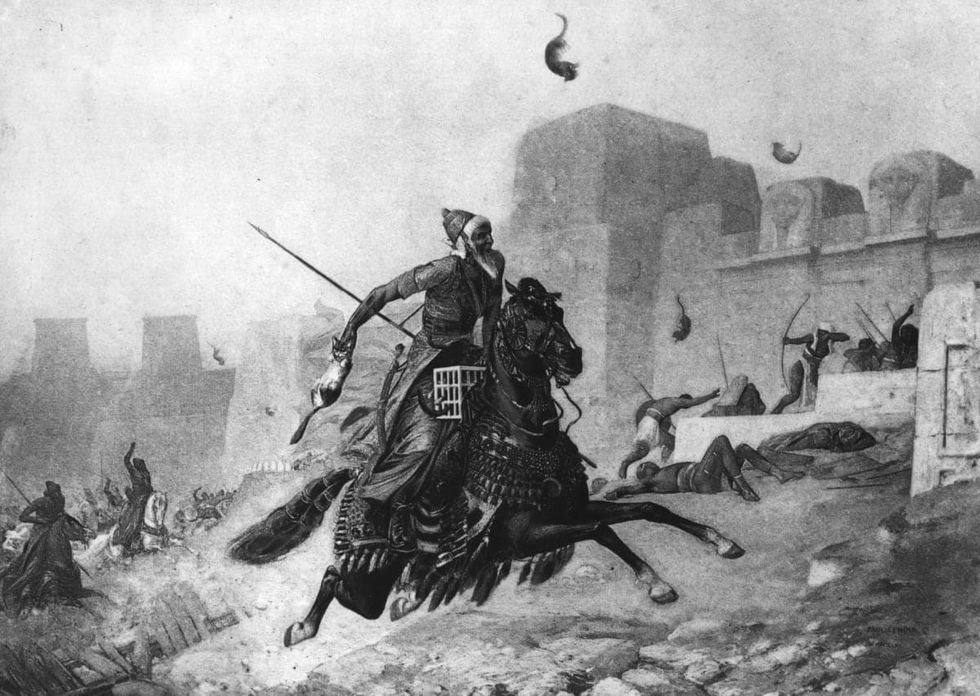
During this time, the Egyptian kingdom was already vulnerable due to its series of conflicts with the Assyrians. Adding to their misery, the empire then faced a deadly clash with the Persians. The battle flared up between Psamtik III and the ruler of the Achaemenid Empire, "Cambyses II." The primary reason behind the battle was the aggravating actions of Psamtik III's father.
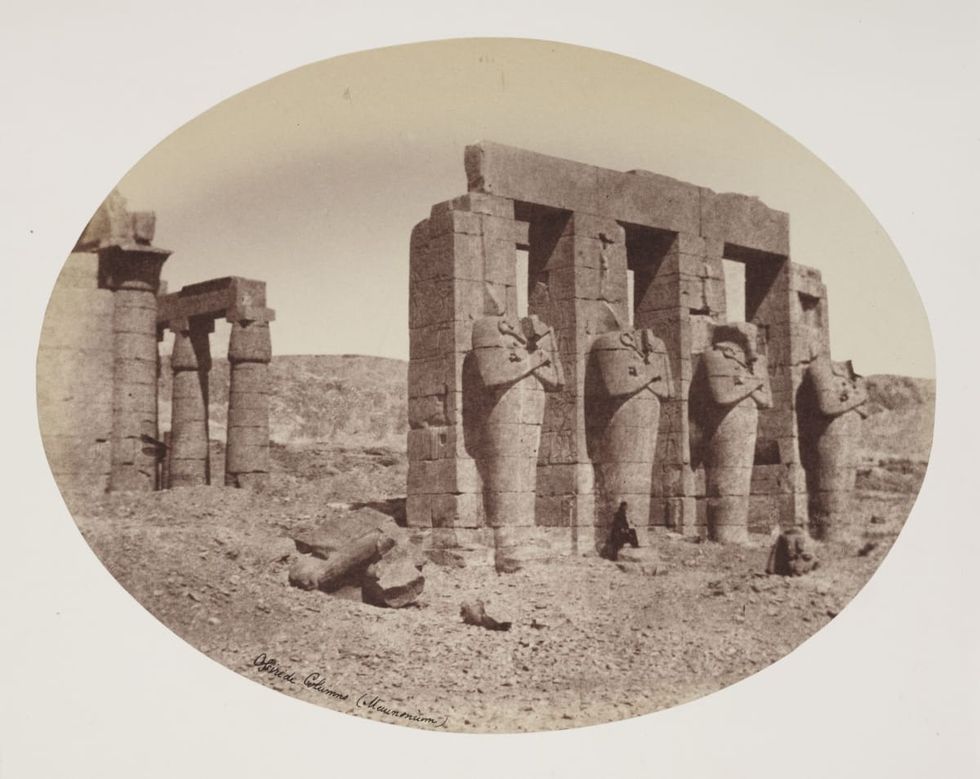
According to the Egypt Tours Portal, when King Cambyses asked Amasis for his daughter's hand in marriage, he didn’t want to lose his daughter to a Persian. So, instead of his daughter, Amasis sent another woman to take his daughter's place, in the harem of Cambyses.
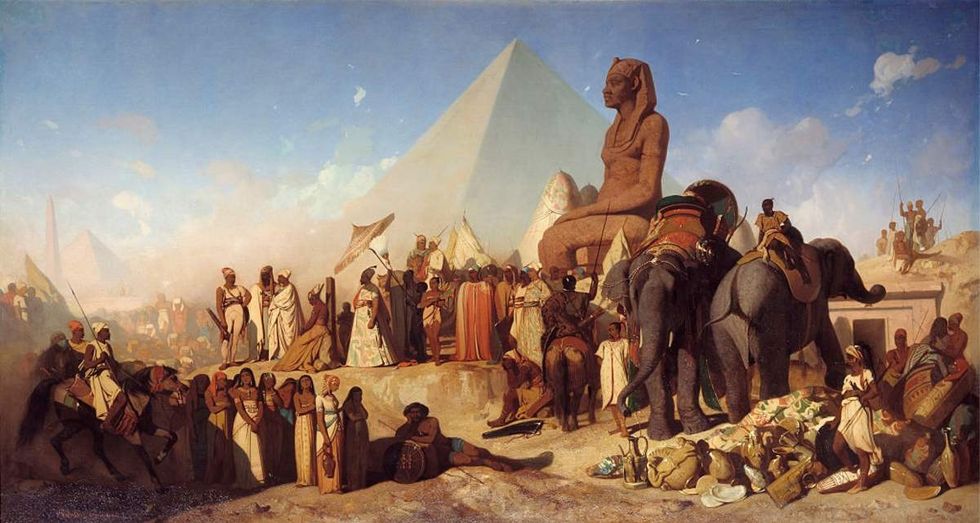
When the other woman met Cambyses, she revealed the entire trickery, making the ruler furious. He vowed to take revenge on Amasis’ empire. Amasis had many enemies who also joined their forces with the Persian Empire, including the Phanes of Halicarnassus. Phanes later became the true mastermind behind the victory of the Persians. He told Cambyses about the Egyptians' long-held religious belief about cats. Another enemy of Amasis that helped Cambyses was the king of Arabia who granted the Persian army a safe passage to reach Egypt.

However, Amasis passed away six months before Cambyses reached Egypt, leaving the throne to his young son Psamtik III. A few days after his coronation, rain fell in the city of Thebes, which was a rare event that frightened Egyptians, as per Bible History. They interpreted this as a bad omen. Their fears soon manifested into a dreadful reality when the Battle of Pelusium broke out.
The Battle of Pelusium vanished Egypt’s history with the stain. Cambyses’ vitriolic fury smirched the Egyptian land with the ruling stamp of Persian power. The Persians employed a devious strategy that directly assaulted Egyptians’ deep religious beliefs, particularly regarding cats. Above everything else, Egyptians revered cats. In Egyptian culture, cats were celebrated as representations of gods and deities.
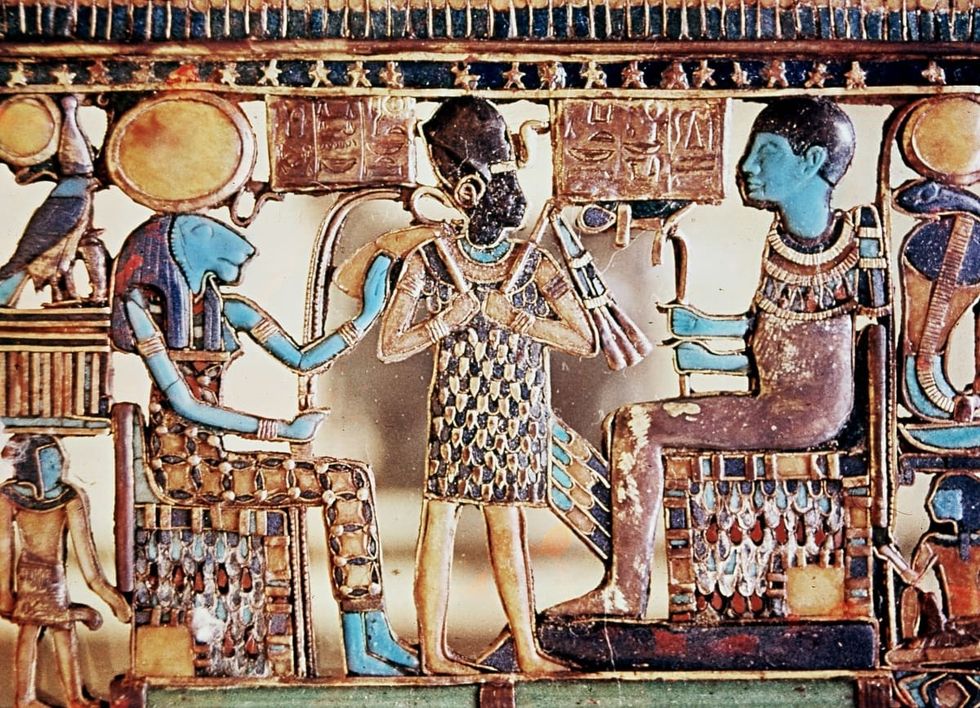
The Persian army exploited this deep-seated belief by using cats as hostages and employing them as a strategic weapon during the Battle of Pelusium. They herded these worshipped animals before their battle line and painted pictures of cats on the shields of the soldiers, per World History Encyclopedia.
This manipulative scheme affected the Egyptians’ spiritual beliefs and emotional attachment to cats, causing havoc on the battlefield. They couldn’t shoot their arrows as their attack would insult the sacred animals. The Persians took advantage of this and defeated the opposing army, clutching control over the strongholds of Egypt and altering the course of Egyptian history forever.
King Psamtik had to surrender the city to the Persian emperor. Not long after this, the Persians also wiped away Psamtik’s name from history. They ruled the Egyptian land in the 27th and 31st Dynasties until Alexander the Great defeated them in 332 B.C.E.
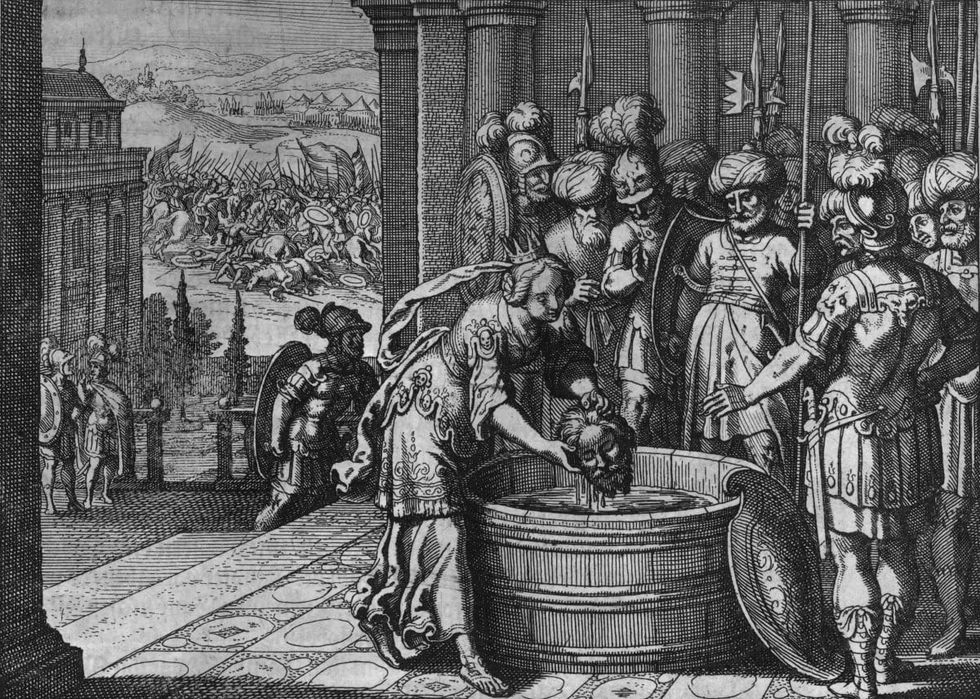
The crafty psychological warfare employed in the Battle of Pelusium has made it infamous among the many battles of history. Commenting about the battle in a thread by r/todayilearned, a Reddit user (u/dbatchison) wrote, “Scholars described the battle as an utter catastrophe.”





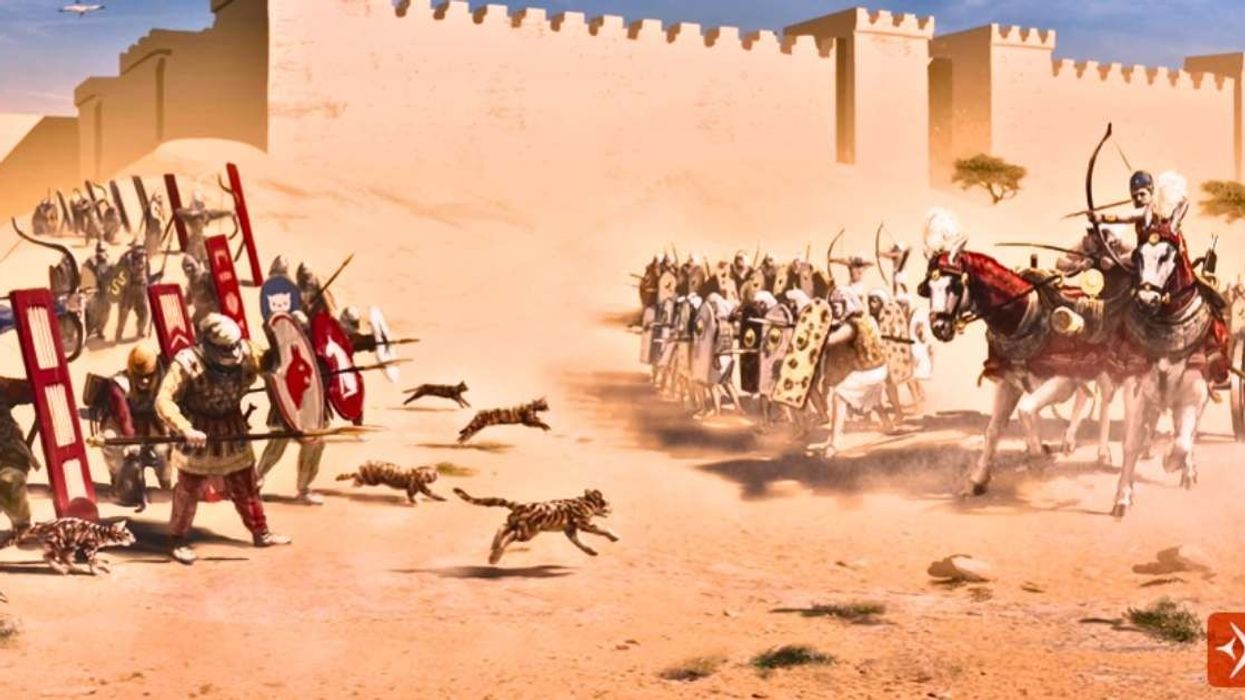












 As mayor of Stockton, Calif., Michael Tubbs ran a pioneering program that provided a basic income to a limited number of residents.
As mayor of Stockton, Calif., Michael Tubbs ran a pioneering program that provided a basic income to a limited number of residents. Martin Luther King Jr. believed Americans of different racial backgrounds could coalesce around shared economic interests.
Martin Luther King Jr. believed Americans of different racial backgrounds could coalesce around shared economic interests.
 Image frmo Scientific Reports of ancient artwork. Image Source:
Image frmo Scientific Reports of ancient artwork. Image Source:  Image frmo Scientific Reports of ancient artwork.Image Source:
Image frmo Scientific Reports of ancient artwork.Image Source:  Image frmo Scientific Reports of ancient artwork.Image Source:
Image frmo Scientific Reports of ancient artwork.Image Source: 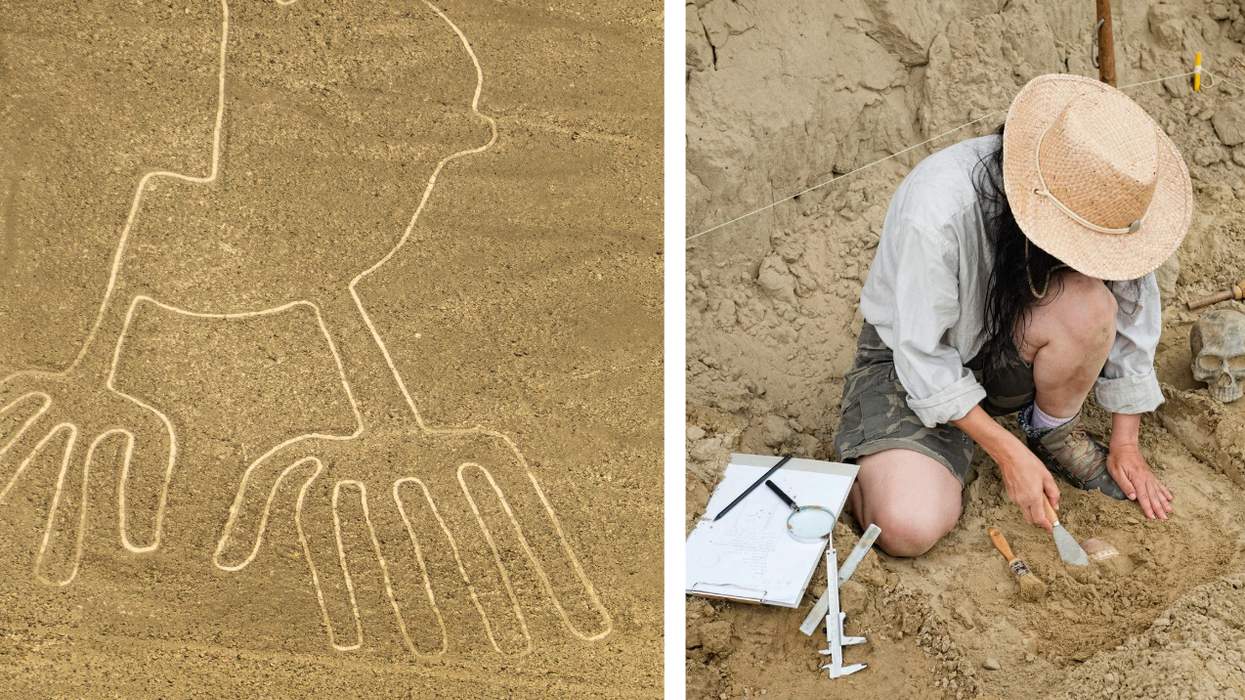

 It's difficult to imagine seeing a color and not having the word for it. Canva
It's difficult to imagine seeing a color and not having the word for it. Canva
 Sergei Krikalev in space.
Sergei Krikalev in space. 


 The team also crafted their canoe using ancient methods and Stone Age-style tools. National Museum of Nature and Science, Tokyo
The team also crafted their canoe using ancient methods and Stone Age-style tools. National Museum of Nature and Science, Tokyo The cedar dugout canoe crafted by the scientist team. National Museum of Nature and Science, Tokyo
The cedar dugout canoe crafted by the scientist team. National Museum of Nature and Science, Tokyo